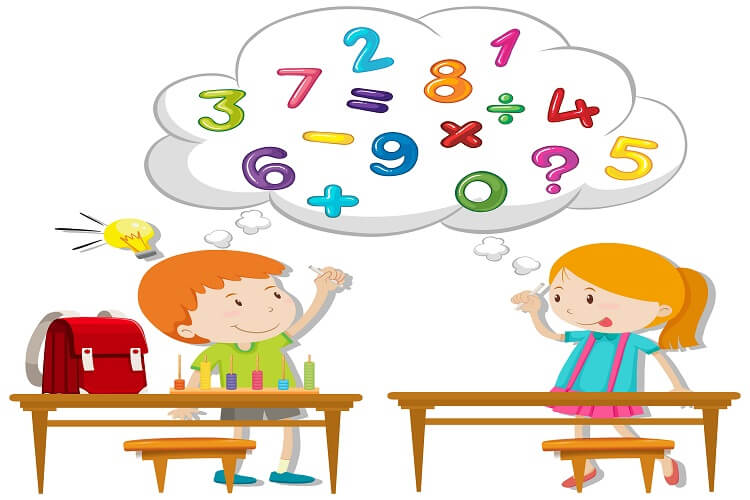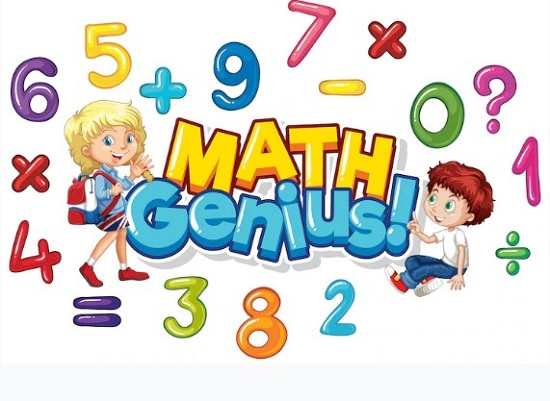Mental Math for Kids: How to Teach Your Children to Do Mental Math?


Mental Math is one of the most significant aspects of schooling for school-aged youngsters. It is employed not just in classrooms, but also in everyday situations. It is the technique of performing mathematical calculations in our heads without using a calculator, pen, or paper. Some conceive of it as altering numbers in their heads. Continue reading to learn more about Mental Math for kids.
Mental Math for Kids: What is Mental Math?
Mental math is the capacity to execute mathematical calculations in your brain without the use of a calculator or pen and paper. It necessitates excellent memory abilities. The ability to recall numerical combinations and facts necessitates a strong long-term memory. Working memory is also important for keeping track of the procedures required to address a specific problem.


If the children struggle to answer difficulties, this does not imply that they are not intelligent. It simply implies that everybody’s mental math capacity varies, and that progress occurs at its own speed.
Furthermore, if your kid or pupils struggle to do arithmetic problems in their brains, you may follow the methods below to assist them to improve their mental math capacity.
Learning courses for your kids! Get free trial here
Why is Mental Math Important?
# Improves children’s ability to focus.
# It piques children’s interest in mathematics.
# Increases the child’s self-esteem.
# Assists in the development of arithmetic application abilities.
# Assists in the reduction of errors in problem-solving.
# Strongly linked to improved memory abilities.
Also Read: Quiz Games for Friends: A list of Questions for Friends of All Age Groups
How to Teach Your Children to Do Mental Math?
Follow these points to teach this subject to your kids:
Teaching It
Mental math is an excellent approach to excite and train one’s intellect. A person who does this arithmetic style will discover that their mind functions faster and more efficiently in general.
It increases students’ number sense, which is essential for being successful in a wide range of math courses, allows them to accomplish simple calculations quickly without the need of a calculator for ease, and allows them to cognitively confirm if the figure supplied by a calculator makes sense. Higher exam scores, perceived intellect, and confidence all result from improved mental math skills.
There are several general ways for training this subject that might be useful. Some of those tactics will be summarized in this lesson.
Verbalizing Mental Processes
One of the most significant ways for teaching mental math is for teachers and students to describe the steps involved in problem-solving. Making the procedures in problem-solving explicit can assist pupils to figure out how to accomplish it and teach the brain to utilize the best strategies possible.
In a group, one pupil can teach another by speaking out about the approach, and teachers can utilize this method to deliver direct teaching on mental math. It can also assist pupils in making their mental processes clear and refining them.
Math Facts
Students must also practice acquiring arithmetic facts as part of their mental math education. While there is less focus on rote memorizing in modern schooling, and for a valid reason, mental math is maybe the only domain where memory is still important.
This is due to the fact that the human brain can only keep so many items in its short-term memory at one time. The more numbers you have in your mind, the more difficult it is to solve issues. We can speed up mental math by learning particular arithmetic knowledge, such as timetables.
This also enables kids to answer more difficult mental math problems that they would not be able to solve otherwise since they do not need to break down every little portion of the issue into even smaller bits.
Math information can be taught by straight memorization or via practice. In any case, a student’s ability to retain the answer to extremely easy math problems will significantly increase their mental math skills.
Also Read: How Can a Kid Learn Python? Best and Exciting Ways for Children to Learn a Computer Language
Mental Math Tricks for Kids
Here are 3 simple tricks for your kids:
Trick 1: Multiplying a Number by 5
To multiply a number by 5, simply divide the number by 2 and multiply it by 10.
For example, multiply 86 by 5.
Step 1: Divide 86 by 2 = 43
Step 2: Multiply 43 by 10 = 430
Answer: 430
This is one of the first and easiest tricks I’ve taught my kids. Once your kids get the hang of it, they’ll take only a moment to find the answer.
Trick 2: Multiplying a Double-digit Number by 11
Multiplying any double-digit number by 11 takes only a moment. All you have to do is add up the two numbers and place the sum in between the two numbers.
For example, multiply 54 by 11
Step 1: Add 5 and 4 = 9
Step 2: Place 9 in between 5 and 4 = 594
Answer: 594
Trick 3: Multiplying a Number by 6
This trick is only helpful when multiplying even numbers by 6. You will have to divide the number by 2 to get the first digit of the answer. The next digit will be the number you divided 6 with.
For example, multiply 8 by 6
Step 1: Divide 8 by 2 = 4
Step 2: Place 8 after 4 = 48
Answer: 48
Conclusion
The process of performing calculations in one’s brain without the use of paper, pen, or calculator is known as mental arithmetic. It’s similar to mentally manipulating numbers. We practice mental math every day, whether it’s calculating how much time is left in school or calculating the number of points our team needs to win a rugby match. It’s a really useful talent, but it’s also one of the least developed. People seldom calculate cognitively these days, with calculators easily available on phones and tablets.
Learning courses for your kids! Get free trial here
Also Read: Machine Learning for Kids: Check Out the Overall Learning Opportunity for Kids!
Recent Posts
What are the Advantages of Online Teaching at The Real School?
In the article -"What are the Advantages of Online Teaching at The Real School?" we…
What is the Full Form of School?: Unveiling the Acronym
The term "school" carries profound significance in the realm of education, representing more than just…
What is Math Full Form?: Cracking the Code
Mathematics, often referred to as "Math," is a subject that elicits various reactions from students…
What is Full Form of Homework?: Decoding Academics
Homework, an integral part of the academic journey, often raises questions about its purpose and…
What is Full Form of Teacher?: Demystifying Education
In the intricate tapestry of education, teachers stand as the pillars shaping the intellectual and…
What is Real Education?: Discovering Its Essence and Impact
The concept of real education is evolving, transcending traditional views that equate it solely with…


